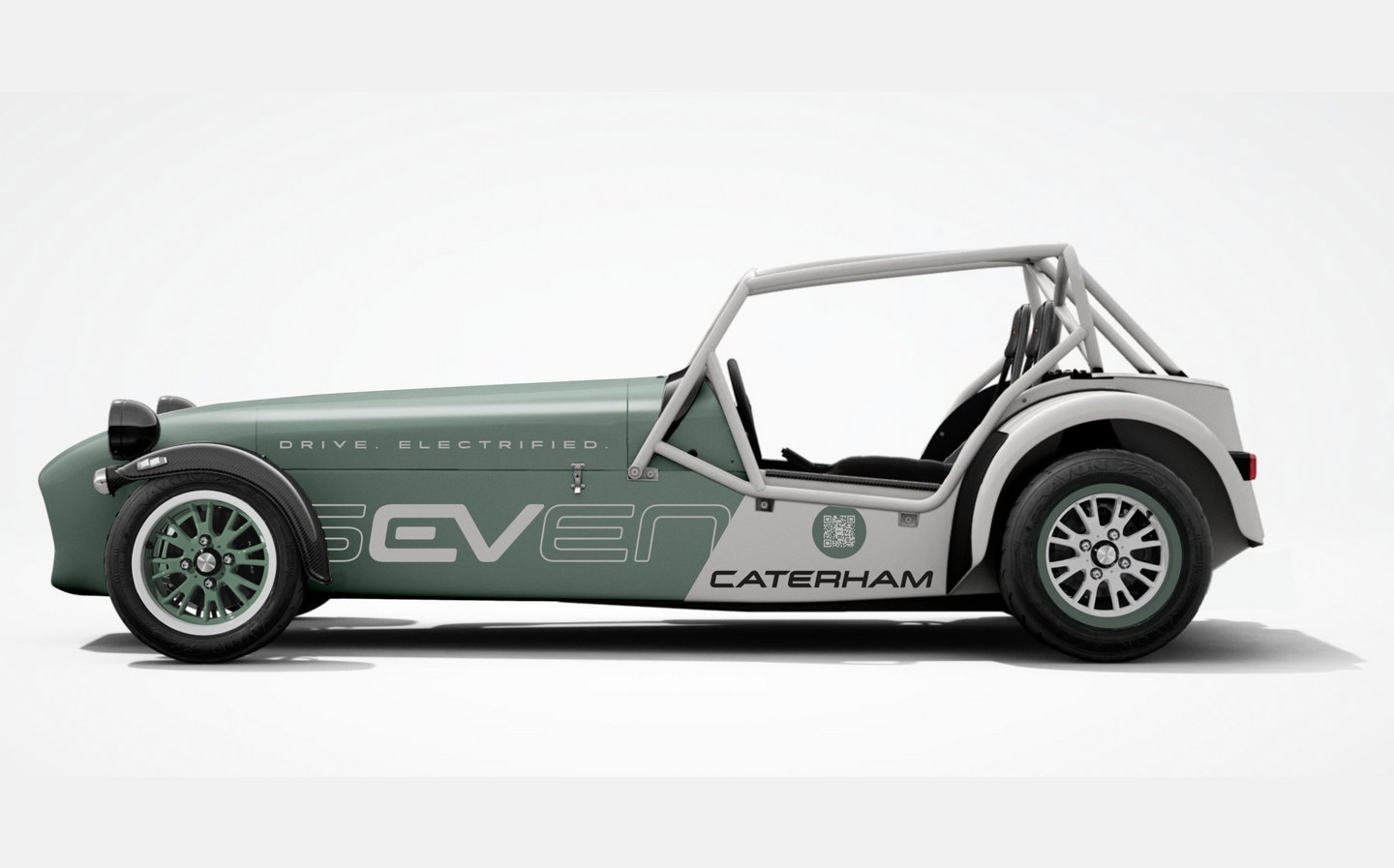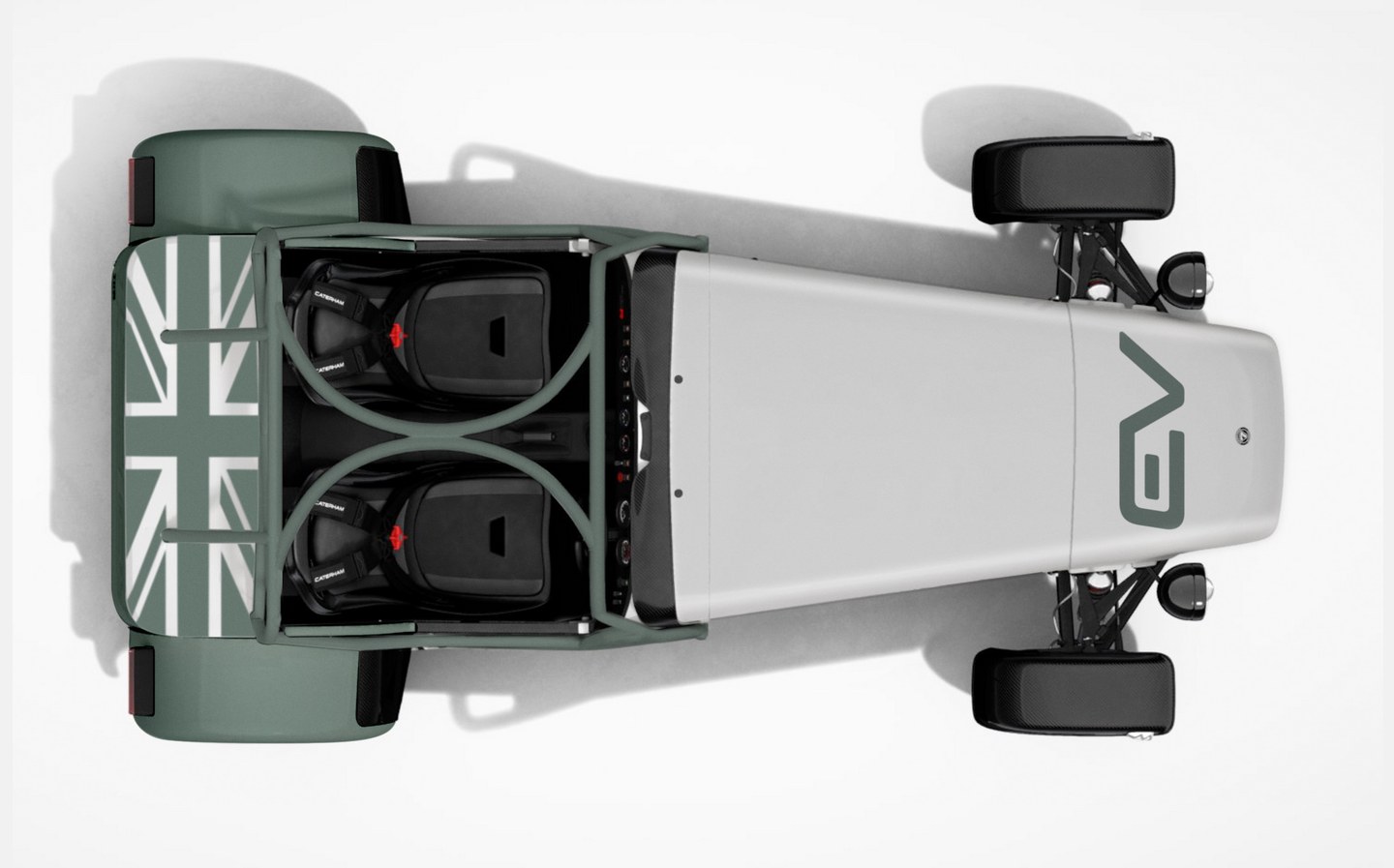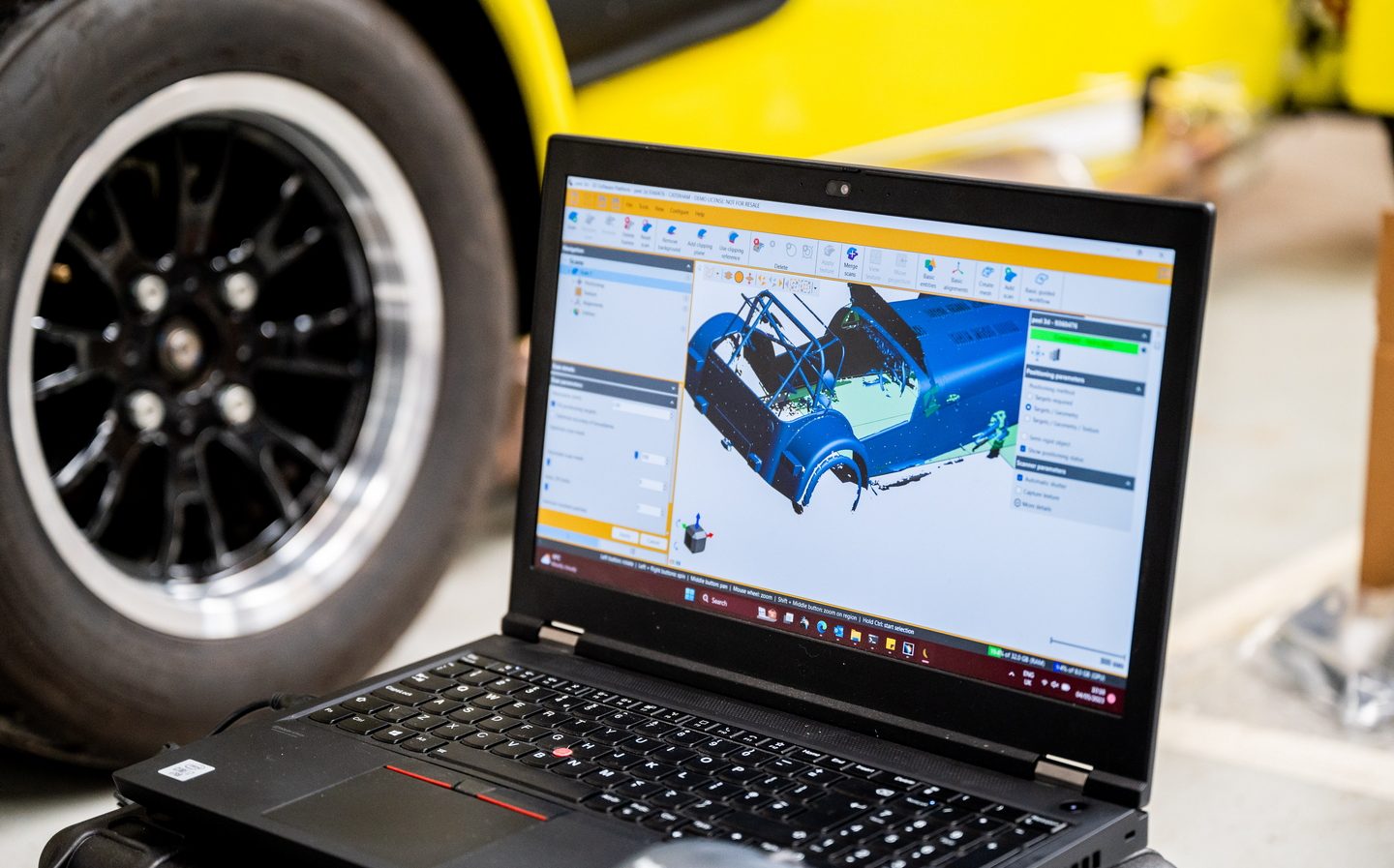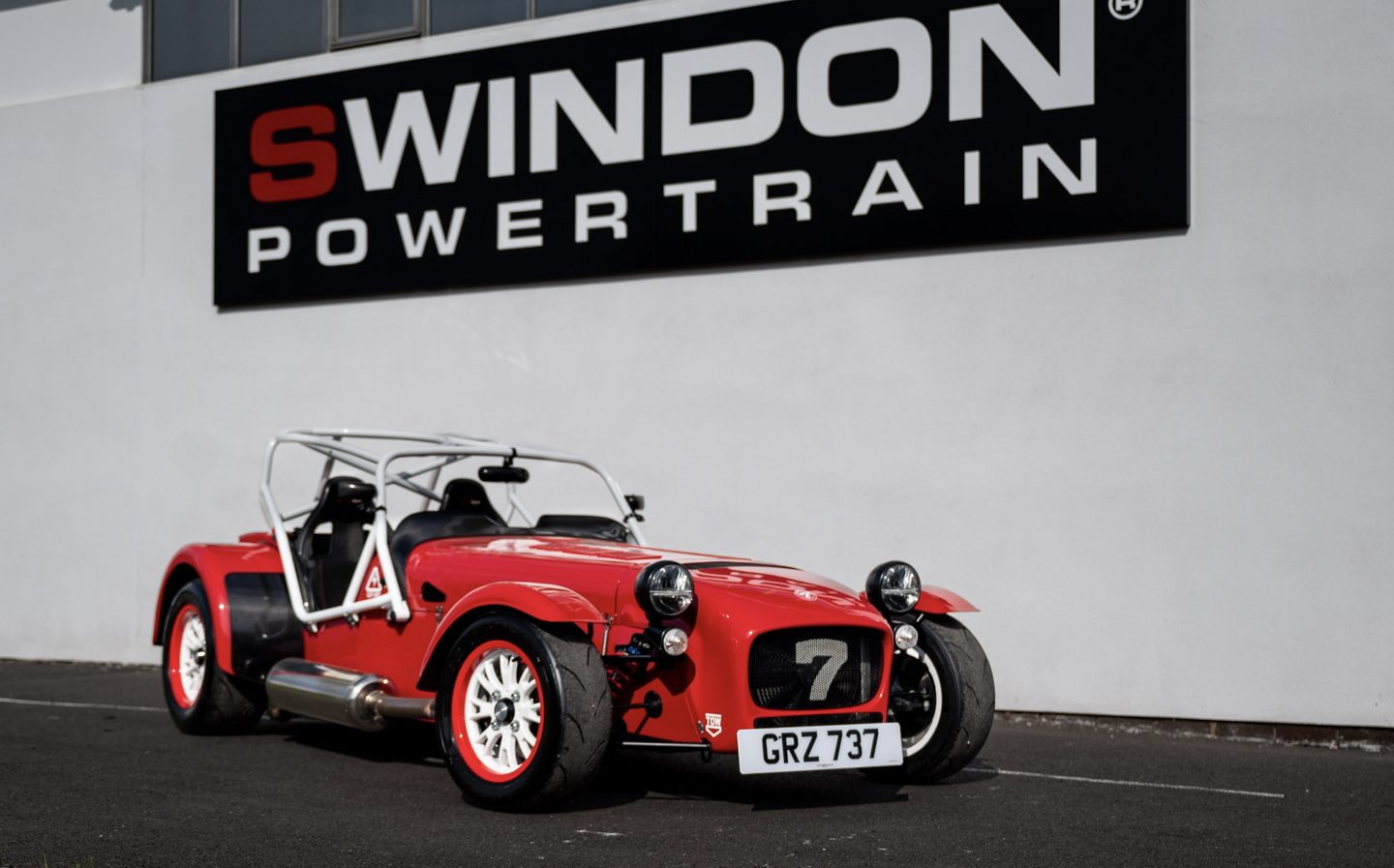Caterham EV Seven electric concept revealed — and it weighs just 70kg more than petrol version
Charging for 20 mins allows 15 mins of track action
Niche British sports car manufacturer Caterham has revealed its vision for an electric version of its Seven, and fans of the lightweight performance machine will be pleased that switching to battery power is unlikely to add too much heft.
Though the Seven can trace its origins back to the Lotus Seven of 1957, Dartford-based Caterham has been building versions of the model since the early 1970s. This latest concept was create to “test the feasibility” of a lightweight electric Seven as the UK approaches a ban on sales of new petrol and diesel cars in 2030.
Developed in partnership with Swindon Powertrain, which has worked with Caterham in the past, the new concept combines the existing Seven’s architecture with “cutting-edge” battery technology and a rear-mounted electric motor.
Because Caterham says the electric Seven has to fit in with the car’s ethos of lightweight performance, the company decided the difference in weight between existing petrol-powered Sevens and an electric model must be no more than the weight of a passenger.
Only 70kg heavier than equivalent petrol model
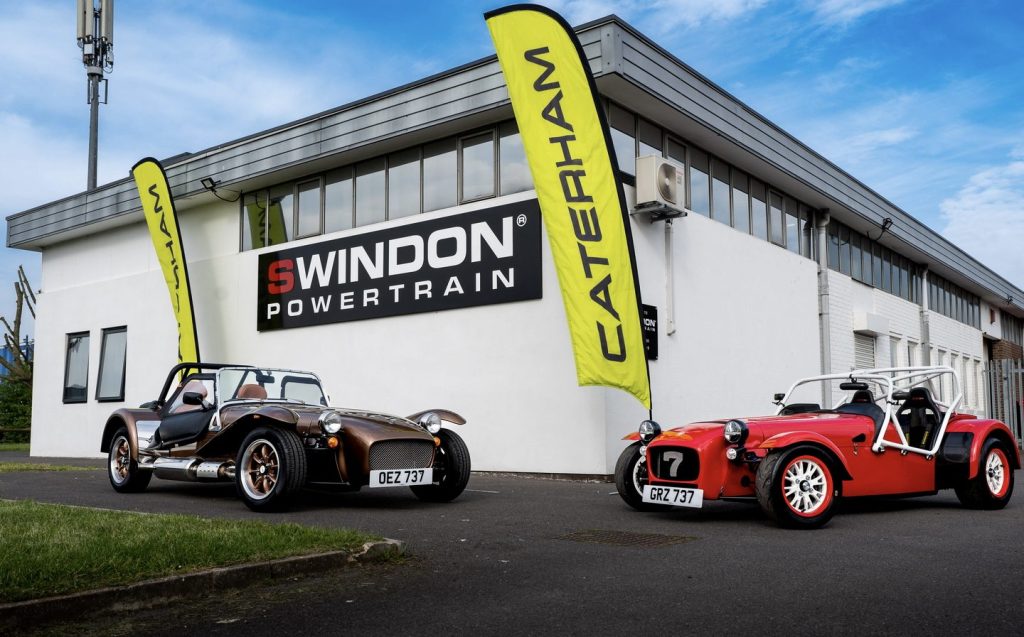
As a result, Caterham limited the size of the battery to 51kWh, so the whole car weighs less than 700kg — an increase of 70kg compared with the existing Seven 485 (SV) sold in Europe and Japan. That, combined with the 240bhp electric motor, will allow the electric Seven to get from 0-60mph in around four seconds, which is roughly the same as the Seven 485 (SV).
As well as comparable performance, Caterham is also promising similar “driveability” to the petrol-powered car, with “an absolute focus on delivering a fantastic driving experience”.
To that end, the company has fitted the electric version with a limited-slip rear differential, adjustable Bilstein dampers and quad-piston brake calipers to supplement the regenerative braking of the motor.
Designed for track use
Caterham’s search for electric performance extends to the charging and range, too, with the company’s boss asserting that any Caterham should be usable on the road or the track. For track use, the firm has developed a charging system that allows the car to drive for 20 minutes on track, then charge for 15 minutes and gain enough energy for a further 20 minutes of high-speed track time.
To do that, the company has limited the usable capacity of the battery to around 40kWh, or less than 80 per cent of the total ‘gross’ capacity. In that way, Caterham claims the battery can charge at speeds of up to 152kW without “premature degradation” of the cells.
The battery itself will be housed in the transmission tunnel of the existing Seven’s floor and will be immersion cooled for better heat management when the battery is charging or discharging.
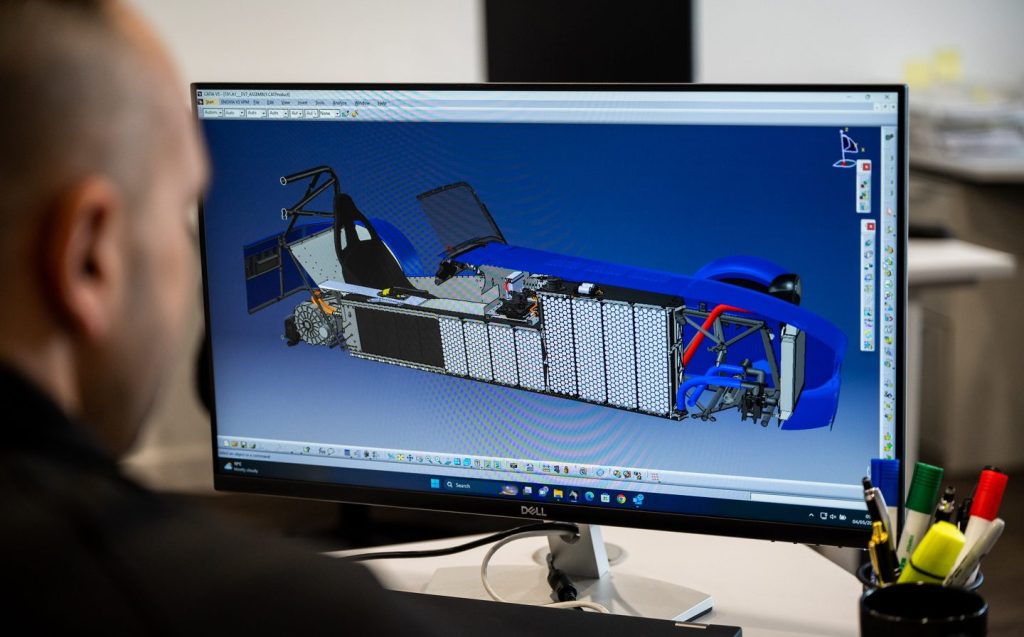
Not set for production in this guise
Caterham currently has no plans to produce the electric Seven in any numbers, but it will make its public debut at the Goodwood Festival of Speed in July. This will be followed by the reveal of another pure-electric sports car concept later this year.
“Any future EV model we produce must be true to the DNA of a Caterham: lightweight, fun-to-drive and driver focused,” said Caterham CEO Bob Laishley.
“The main objective for this project is to develop a vehicle with a weight delta of no more than the equivalent of having a passenger on board. We’re never going to launch a one-tonne Seven — we’d rather not do it.
“We do not have plans to put EV Seven into production at this stage — it’s a test bed to see how well an EV powertrain works for our customers’ specific use cases. We’re doing this project with our eyes wide open so that we can learn how to deliver the specific Caterham vehicle attributes necessary for a Seven.”
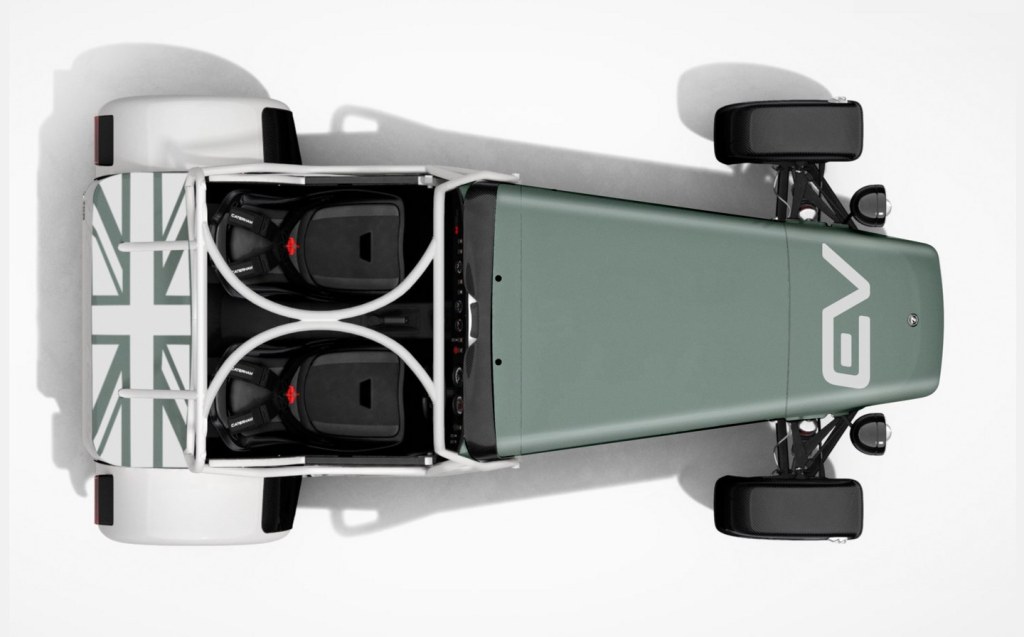
The Seven has been a stalwart for Caterham for around 50 years, with the brand first building Sevens in the early 1970s.
The small British company bought the rights to the Seven name and design from Lotus, which had conceived the car as a small, lightweight sports car.
The current Caterham Seven is based on the Series 3 Lotus Seven, albeit heavily developed over the years.
Related articles
- After reading about the first electric Caterham Seven, you might like to read Will Dron’s review of the Lotus Emira
- Also check out our list of the five best sports cars to buy in 2023
- And don’t miss our list of the five greatest Lotus sports cars of all time
Latest articles
- Bedeo Defender 110 2024 review: Does electric Landie with in-wheel motors make for a perfect off-roader?
- F1 2024 calendar and race reports: What time the next grand prix starts and what happened in the previous rounds
- BYD Seal U 2024 review: Chinese brand adds plug-in hybrid SUV to its electrified line-up
- New Mini John Cooper Works revs up for Nürburgring 24-hour race debut
- Ineos Grenadier Quartermaster 2024 review: British pick-up is a tough mudder but too flawed to be a real workhorse
- Mini Cooper SE 2024 review: All-new electric hatchback is playing to the crowd
- Jeep Wrangler 2024 review: Impressive off road but you’d still have to be a committed contrarian to buy one
- Around 500 Ford workers in UK could go on strike over cost-of-living pay dispute
- Durham solar car team to take part in 24-hour race with smart tyres and night-driving solution



